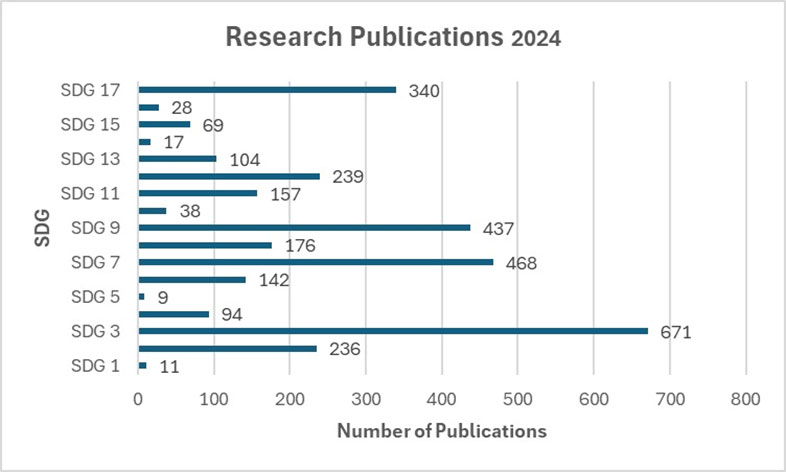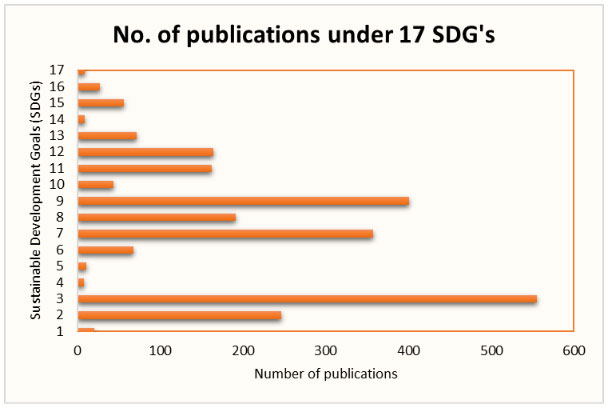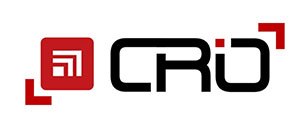
The Centre for Research Impact and Outcome (CRIO) at Chitkara University is a pioneering initiative dedicated to advancing research with tangible societal, economic, and scientific benefits. As a multidisciplinary hub, CRIO fosters high-impact research, ensuring that scholarly endeavours translate into meaningful outcomes that drive innovation, inform policy, and improve quality of life. Our mission is to bridge the gap between research and real-world application, emphasizing evidence-based practices, translational research, and interdisciplinary collaboration.
Vision and Mission
CRIO envisions a future where research is not confined to academic circles but actively contributes to the betterment of society. Our mission is to support researchers in producing work that leads to measurable improvements in various domains, including healthcare, technology, social sciences, education, and environmental sustainability. We aim to enhance the relevance, accessibility, and practical utility of research findings by fostering partnerships with industry, government bodies, and non-governmental organizations.
Core Objectives
- Enhancing Research Quality and Relevance – CRIO is committed to improving the quality of research by promoting rigorous methodologies, ethical practices, and impactful study designs that address critical societal needs.
- Fostering Interdisciplinary Collaboration – Recognizing that the most pressing global challenges require cross-sectoral solutions, CRIO facilitates collaboration among researchers from diverse fields, encouraging innovative and holistic approaches to problem-solving.
- Knowledge Translation and Dissemination – CRIO ensures that research findings are effectively communicated to policymakers, practitioners, and the public. This is achieved through publications, conferences, workshops, and digital platforms that make complex research accessible and actionable.
- Impact Assessment and Outcome Measurement – A key focus of CRIO is the evaluation of research impact. We employ robust assessment frameworks to measure the effectiveness of research outcomes and guide future investigations toward greater societal benefit.
- Capacity Building and Training – CRIO invests in developing researchers’ skills by offering training programs, mentorship opportunities, and resources that empower scholars to maximize the real-world impact of their work.
Key Areas of Research
CRIO supports a wide range of research domains, including but not limited to:
- Healthcare and Medical Sciences – Advancing patient care, public health strategies, and medical innovations.
- Education and Social Sciences – Enhancing educational methodologies, social policies, and community development initiatives.
- Technology and Engineering – Promoting cutting-edge advancements in artificial intelligence, cybersecurity, and sustainable technologies.
- Environmental and Sustainability Studies – Addressing climate change, conservation efforts, and sustainable development goals (SDGs).
- Policy and Economic Research – Informing evidence-based policies for economic growth, governance, and societal well-being.
Best Papers according to impact factor (2024)-
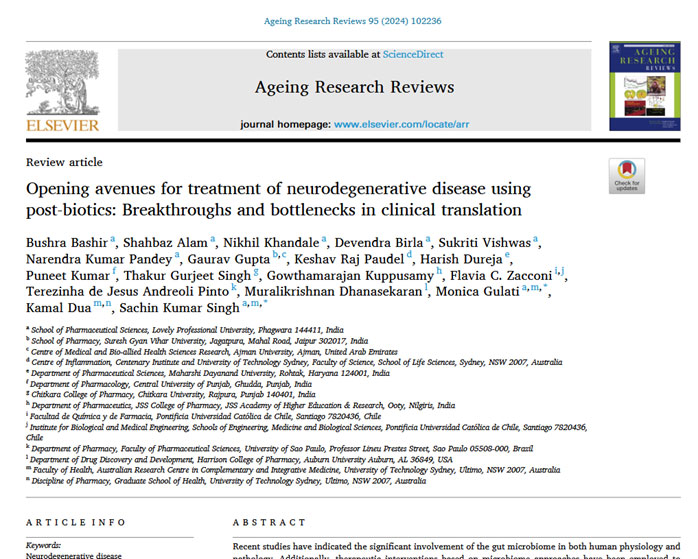
Opening avenues for treatment of neurodegenerative disease using post-biotics: Breakthroughs and bottlenecks in clinical translation.
DOI- https://doi.org/10.1016/j.arr.2024.102236
IF- 13.1
SDG covered- 3, Good Health and Well-being
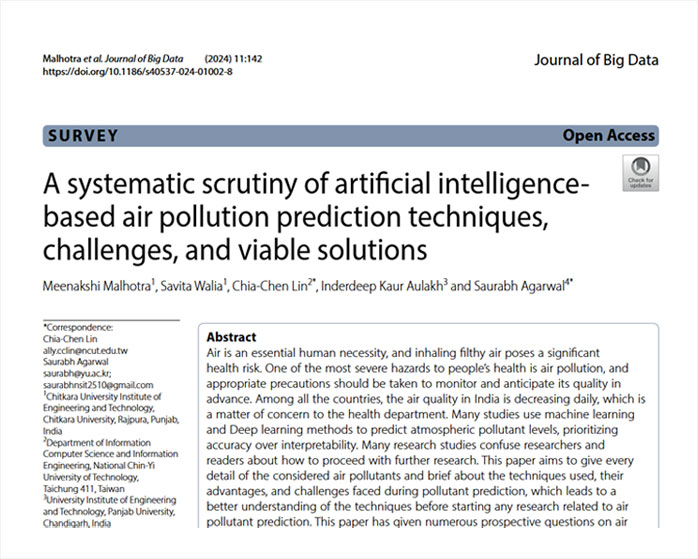
A Systematic Scrutiny of Artificial Intelligence-based Air Pollution Prediction Techniques, Challenges, and Viable Solutions.
DOI- https://doi.org/10.1186/s40537-024-01002-8
IF-12.4
SDG covered- 9, Industry, Innovation, and Infrastructure
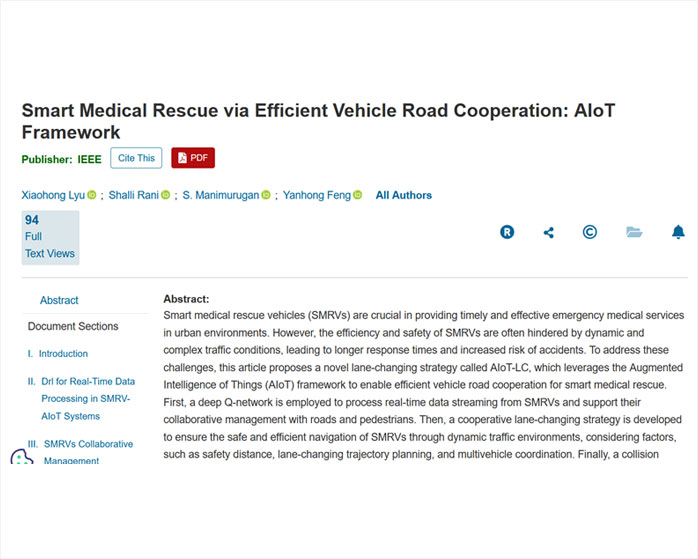
Smart Medical Rescue via Efficient Vehicle Road Cooperation: AIoT Framework.
DOI: 10.1109/JIOT.2024.3479244
IF: 10.6
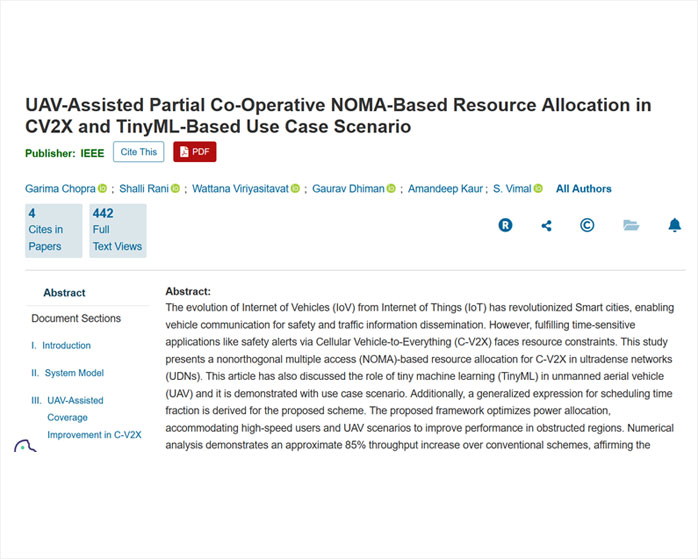
UAV-assisted Partial Co-operative NOMA based Resource Allocation in C2VX and TinyML based Use Case Scenario.
DOI: 10.1109/JIOT.2024.3351733
IF- 10.6
SDG covered- 9, Industry, Innovation, and Infrastructure
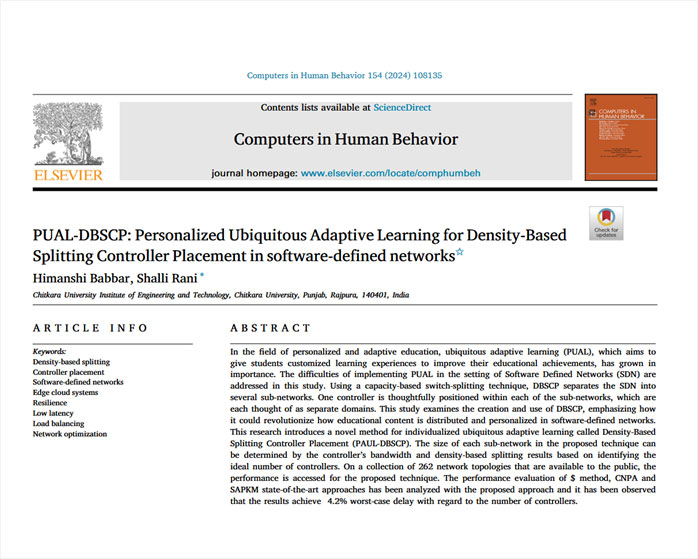
PUAL-DBSCP: Personalized Ubiquitous Adaptive Learning for Density-Based Splitting Controller Placement in Software-Defined Networks
DOI- https://doi.org/10.1016/j.chb.2024.108135
IF- 9.9
SDG- 4, Quality Education
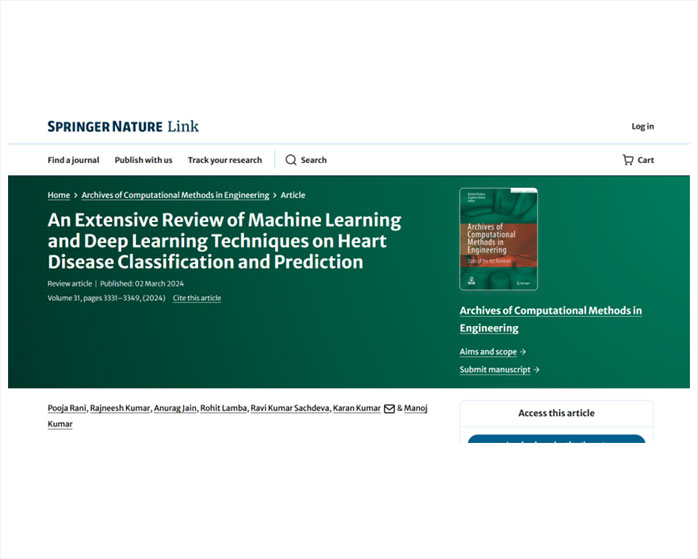
AI student success predictor: Enhancing personalized learning in campus management systems.
DOI: https://doi.org/10.1007/s11831-024-10075-w
IF- 9.2
SDG: 9, Industry, Innovation, and Infrastructure
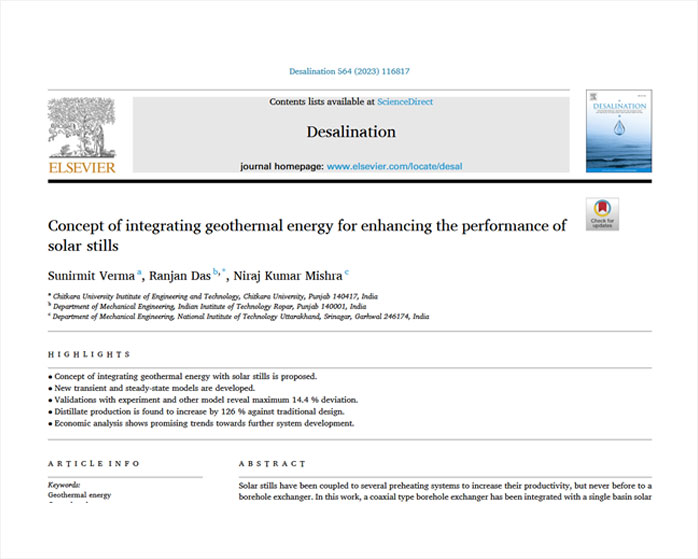
Concept of integrating geothermal energy for enhancing the performance of solar stills.
DOI: https://doi.org/10.1016/j.desal.2023.116817
IF- 9.9
SDG: 7, Affordable and Clean Energy
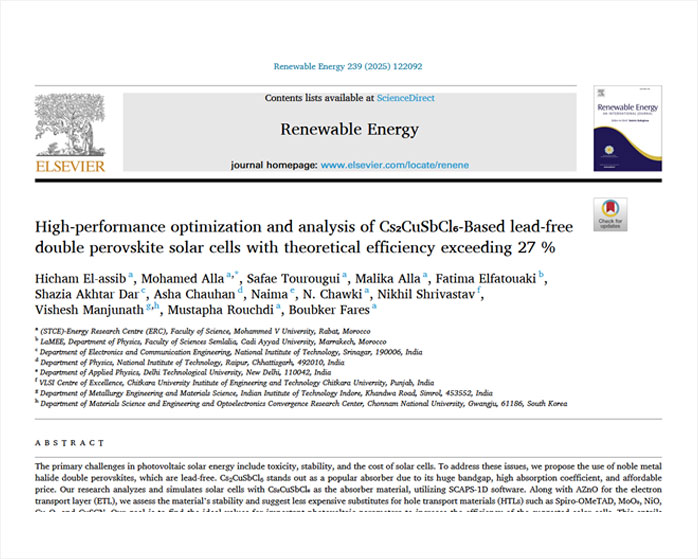
High-performance optimization and analysis of Cs₂CuSbCl₆-Based lead-free double perovskite solar cells with theoretical efficiency exceeding 27%.
DOI: https://doi.org/10.1016/j.renene.2024.122092
IF- 9.
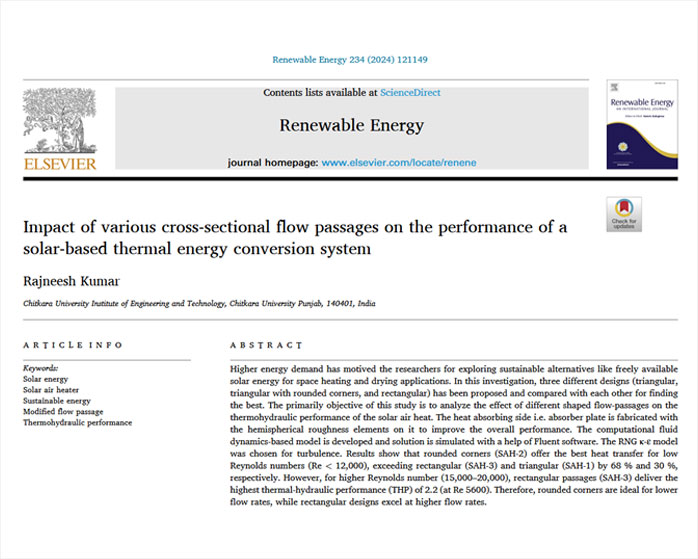
Impact of various cross-sectional flow passages on the performance of a solar-based thermal energy conversion system.
DOI: https://doi.org/10.1016/j.renene.2024.121149
IF- 9.
SDG: 7, Affordable and Clean Energy
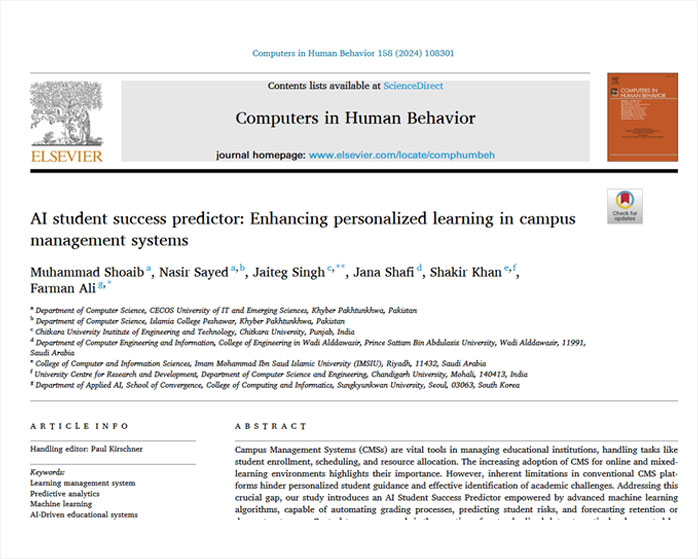
AI student success predictor: Enhancing personalized learning in campus management systems.
DOI: https://doi.org/10.1016/j.chb.2024.108301
IF- 9.
SDG: 4, Quality Education
